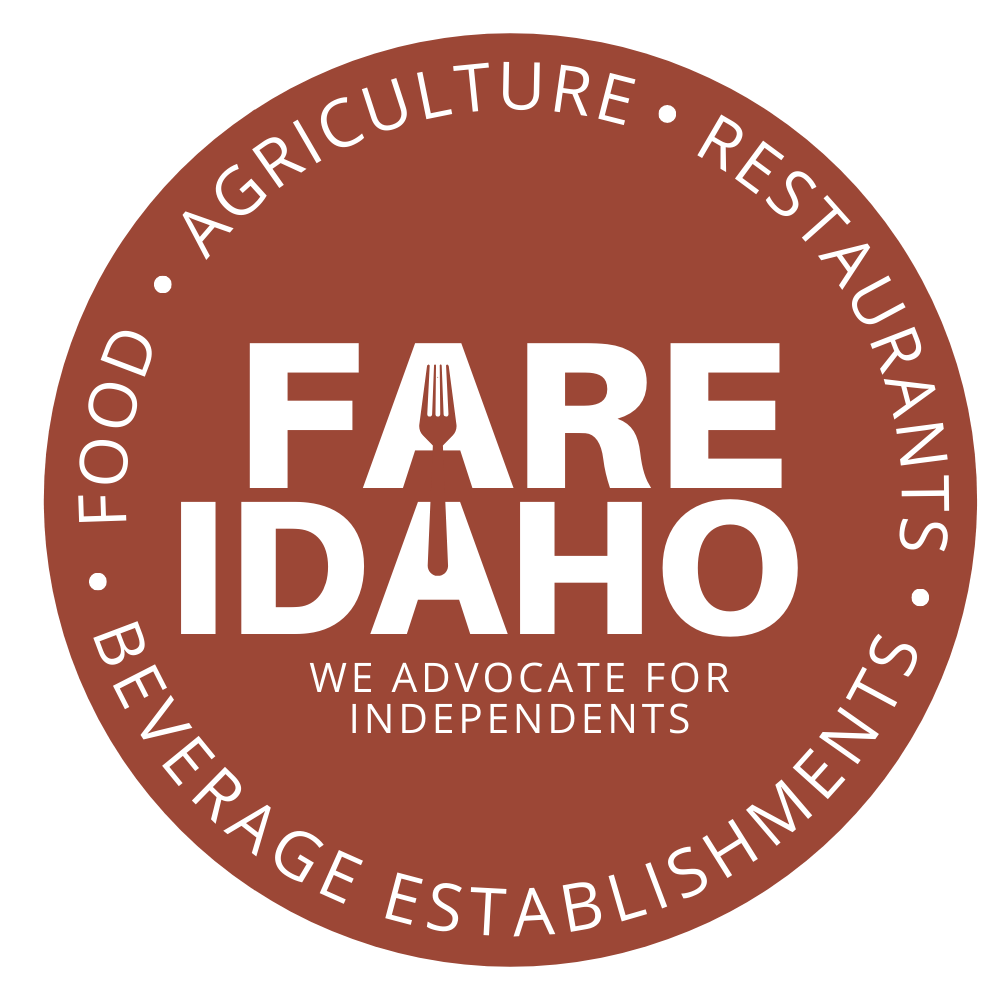How Purple Sage Farms – Award-Winning Local Organic Herb and Greens Farm – Almost Didn’t Exist
Image courtesy of Arlie Sommer
Story by Ash Golangco
Whether you’re an adventurous cook or someone who loves fresh local ingredients, there’s a good chance that you’ve enjoyed Purple Sage Farms herbs and greens while shopping at the Boise Farmers Market in the past decade. Their niche crop of over 250 varieties of herbs makes them a popular go-to farm for restaurants and chefs all over Idaho.
But before Purple Sage Farms made their name, in the late 80s, banks weren’t so eager to give Tim Sommer a loan for his herb and greens farm concept.
It wasn’t necessarily for lack of farming experience – the more likely reason, Tim discussed during our phone interview, is because their farm wasn’t at a commercial size. The Sommers had grown up on farms, and even took over his wife’s family farm with over 250 acres. However, it couldn't pay for itself very well. “The price kept going down on things we grew,” Tim recalled during our phone interview.
Image courtesy of Arlie Sommer
At that point, Tim and his wife realized they didn’t have all the assets and industrial experience that mainstreaming farming had – but they also had assets that they didn’t, from growing skills to marketing to planning ability. With their particular set of skills (Liam Neeson’s laser focus intended), that’s why they decided to specialize in herbs and greens, especially varieties that’d be unique, interesting, and delicious.
Finally, in 1988, Tim Sommer and his wife bought the property and leased a greenhouse for what would become Purple Sage Farms. Their planning paid off well, too, which gave them a lot of confidence in their decision right away – even to this day, Tim believes their farm has always been able to stay true to their original vision.
“Half of it was luck,” Tim enthused, “but it was an excellent choice. It was made evident right away when I started to sell it that our quality and freshness would be ten times better than [what] produce companies could offer.” In fact, Purple Sage Farms could offer same-day or next-day delivery, whereas most produce companies simply couldn’t.
Then again, it didn’t come without a lot of work. “These are plants that require a lot of attention… Most work is done by hand.” But, most importantly, Tim shared the hardest part of his small farming experience: The lack of financing options.
“I no longer had access to money,” Tim shared. “Banks didn’t see us as [someone] they wanted to loan money to.” The farm couldn’t pay for health insurance for the Sommers’ family or farm employees, and sometimes the family didn’t even put themselves on payroll, just to stay afloat. Like many small farming enterprises, unpaid family work became an unfortunate necessity to keep risks low.
Image courtesy of Arlie Sommer
In the Sommer’s case, however, their three kids all grew an enormous passion for their vision of providing unique fresh herbs and greens. For example, Tim’s oldest son, Michael Sommer, earned a degree in Botany from the University of Idaho, and began to deepen Purple Sage Farms’ involvement with the community. He even led some of the initial founding efforts to begin the Boise Farmers Market as we know and love it today.
Today, Purple Sage Farms is thriving, and the community is a big part of it. “We were fearful in the first few months [of the pandemic.]” Yet, their sales today have reached phenomenal levels that are similar to their 2019 numbers.
With his veteran experience towards farm finances, I asked Tim what advice he’d give to new farmers. His advice is not only to utilize free resources on the Internet (a vast resource he never had while starting!) but also utilize your local farmers. “Talk with people who are already part of the Good Food community. There are existing smaller-scale farmers who will usually tell where to get information you need, that are experienced people you can test your ideas with, and gain insights on opportunities and pitfalls. Through this, you will learn many things you didn’t expect.”
This helps immensely with planning as you “consider your farm enterprise on paper and in concept.” Tim said, rest assured, things will go wrong, but that’s the experience of every new crop producer. “You learn and adjust, time after time, year after year.”
(Note: If you’d like to learn more about Purple Sage Farms’ story, stay tuned to this blog – I also spoke with Michael Sommer on how the farm became so involved with the community, and how involvement can benefit your business.)



